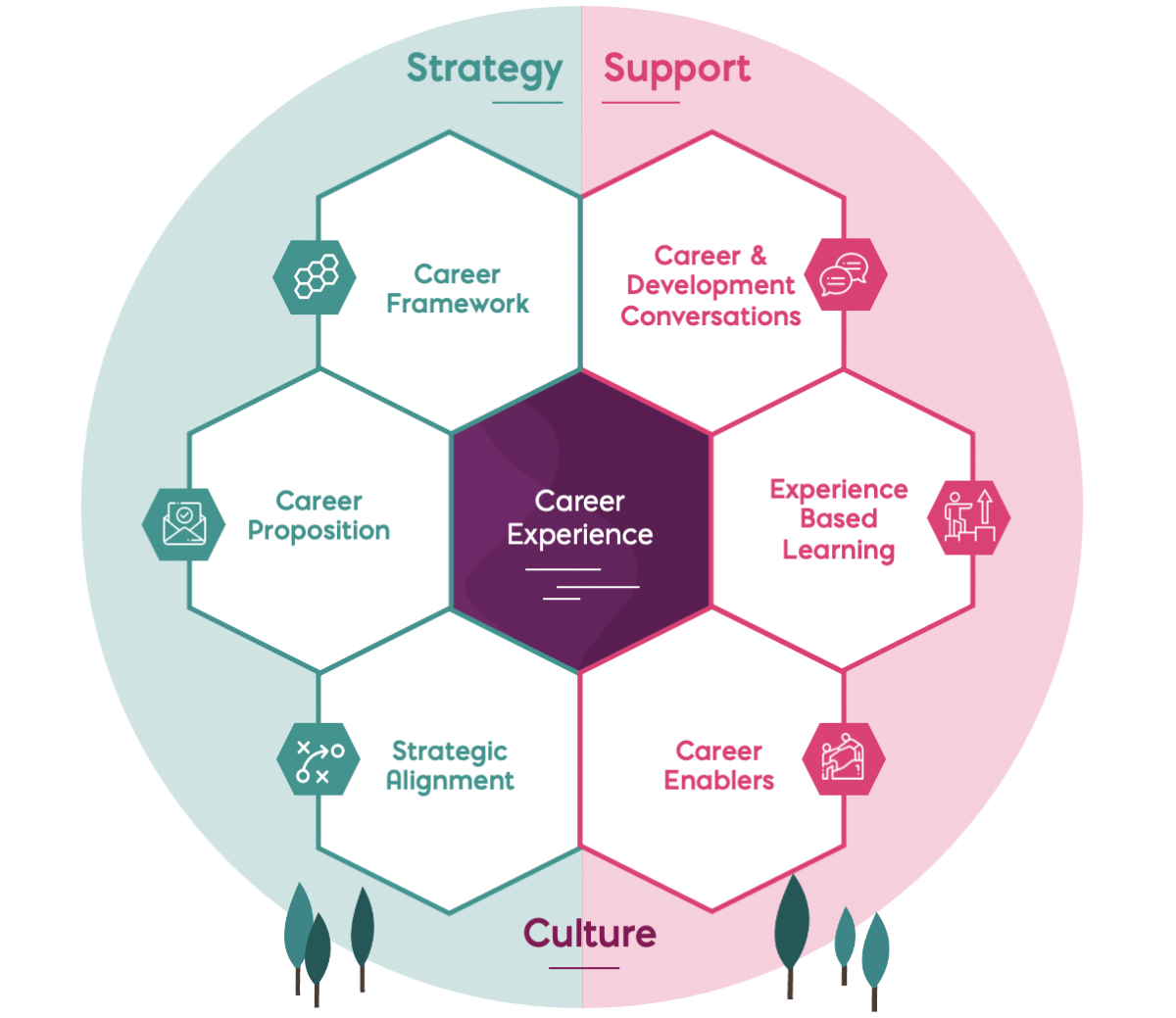Why is career development in such demand? David North explores what’s driving this, and how you can ensure your career development is both strategic and sustainable.
Twenty-five years ago, many people questioned the relevance of a ‘career’, as downsizing and outsourcing transformed the traditional employment deal. Organisations phased out career advisers, and responsibility for career development was transferred to the individual. While career opportunities were still showcased in the EVP, there was little infrastructure to enable this promise.
Influenced by the prevailing business orthodoxy, HR functions shifted their focus from developing the many, to attracting, deploying and retaining the few; otherwise known as ‘top talent’.
Nevertheless, my experience as a development practitioner and researcher consistently demonstrated that careers and career progression mattered to the majority of the workforce. People still wanted – and needed – their employer to support them to achieve their potential and aspirations at work.
Enduring needs, and issues
I studied the state of career development within organisations for the Corporate Research Forum in 2011, and the Career Innovation Company in 2018. In each case, the data I gathered from surveys, focus groups and interviews identified the same expectations and shortcomings. Individuals were seeking:
- Information about new roles, projects, and stretch experiences
- Guidance and feedback from their manager
- Open, broad conversations about their future
- Tools and resources to help self-manage their career
- Potential career routes and their requirements
Given the lack of priority and investment in career development in previous years, it’s no surprise that the lowest scoring items in staff engagement surveys are often career-related. A lack of clarity about career pathways, or who to speak to about long-term development options, are the primary reasons I get involved in career consulting assignments.
A shift in momentum
Things started to change about five years ago. Firstly, I was asked to lead an insight study for a large retailer who wanted to understand what lay behind poor career support scores in their staff survey. Deloitte and Mercer reported career development themes as top trends in their 2018 global talent surveys. Finally, I noticed a significant increase in the number of career-related questions I was being asked by clients.
The most interesting thing about this shift was that it was driven from below. Individuals, particularly those new to employment, were increasingly making decisions about which companies to join, commit to, and leave – and basing this on the likely availability of developmental experiences and career opportunities.
What’s more, there’s an increased desire for a more personalised, rather than generic, offer. As the Mercer survey reported, ‘they want their careers to conform to their personal lives, not the other way around’.[1]
And then Covid-19 came along
Inevitably, the current pandemic has led people to reflect upon their career direction. While everybody’s life has been disrupted, the impact has been very different for each of us.
Maybe your industry has been negatively impacted by COVID-19 and no longer offers reliable employment, in which case it may be necessary for you to change careers or industries altogether. Perhaps you have wondered about a career change for some time, and now’s a natural opportunity to rethink your priorities and preferences. Or you’ve discovered that you enjoy working from home, or the new skills you’ve needed to learn, both suggesting another field entirely.
Whatever your situation, it helps to have the support of a friend or mentor as you work through the big and practical questions that drive career change:
- Who am I?
- What excites me?
- What am I good at, and what do I enjoy doing?
- Where can I make a difference?
How should organisations respond?
From a strategic perspective, this is a great opportunity for organisations to re-position career development at the centre of their EVP. I referred to the pre-Covid momentum that was driving businesses to re-think their approach, and realise the benefits of a compelling, authentic career proposition. As we enter 2021, employees will be even more focused on the career support their organisation offers.
However, it’s vital you can deliver on the commitments you make to existing and prospective employees. For this reason, I recommend our Career Strategy and Support model to guide your efforts. It’s invaluable to have an evidence-based framework to refer to as you build a refreshed, integrated approach.

At a tactical level, an important test of a career proposition’s credibility is access to, and quality of career conversations. We know that:
- Conversations play a vital role in reinforcing the personal connection between managers and team members
- Employees place high value on honest, constructive career conversations
- The pandemic has created demand for a variety of conversations reflecting individual situations and requirements
- Many managers lack the skills and confidence to handle conversations which are more open and ambiguous by nature
A scalable plan to upskill managers to have these conversations is essential, and the Agile Response virtual learning programme addresses this need.
Looking further ahead
As a result of the pandemic, everything has changed. And yet, reflecting on how organisations need to respond, very little has changed. Over the 25 years I’ve been working in career development, people have consistently wanted the same things from their organisation. It’s just that their needs are more acute at this moment.
Companies that
- recognise the importance employees attach to career development support and
- adopt an intentional, sustained approach
will be best placed to attract and retain an engaged, productive workforce as we journey into an uncertain future.
For a joined-up career strategy that meets your organisation’s needs and success outcomes, find out more about career strategy consulting.
[1] Mercer 2018 Global Talent Trends Study; Unlocking Growth in the Human Age.





